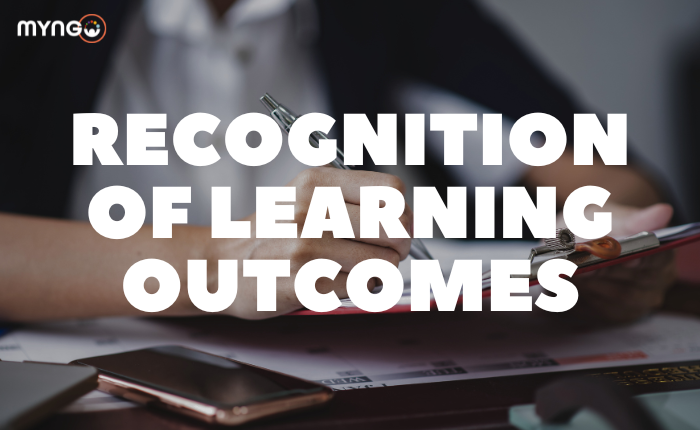
In this lesson, we will delve into the recognition of learning outcomes in Erasmus+ projects, focusing on both formal and non-formal learning. An integral part of Erasmus+ is the emphasis on lifelong learning and the holistic development of individuals. Understanding how learning is recognized within the programme, especially through tools like Youthpass, will help your organization effectively document and validate the skills and competencies gained by participants.
Understanding Learning Outcomes
Learning outcomes refer to the knowledge, skills, attitudes, and competences that individuals acquire through their participation in educational activities. In the context of Erasmus+, recognizing these outcomes is crucial for validating the experiences and growth of participants, whether they engage in formal or non-formal learning.
Formal Learning
Formal learning within Erasmus+ typically takes place in structured educational settings such as schools, colleges, and universities. It follows a defined curriculum and leads to recognized qualifications and certifications. Here are key aspects of formal learning:
- Structured Curriculum: Formal learning is based on a set curriculum designed to meet specific educational standards and outcomes.
- Assessment and Certification: Learners are assessed through various methods, including exams, assignments, and practical tasks, leading to formal qualifications.
- Institutional Framework: Formal learning occurs within established educational institutions, ensuring a standardized approach to teaching and learning.
Examples of Formal Learning in Erasmus+:
- University courses and modules undertaken as part of Erasmus+ higher education mobility.
- Vocational education and training programs leading to diplomas or certificates.
Non-Formal Learning
Non-formal learning is a flexible, learner-centered approach that occurs outside traditional educational settings. It focuses on personal development, skills acquisition, and active participation, often through experiential learning activities. Non-formal learning in Erasmus+ includes youth exchanges, training courses, and community projects.
Key Characteristics of Non-Formal Learning
- Flexibility: Non-formal learning adapts to the needs and interests of participants, allowing for creative and innovative educational approaches.
- Experiential Learning: It emphasizes learning through experience, encouraging practical application and hands-on activities.
- Personal and Social Development: Non-formal learning fosters personal growth, social skills, and active citizenship.
Examples of Non-Formal Learning in Erasmus+
- Youth exchanges where participants from different countries collaborate on common projects.
- Training courses for youth workers to enhance their skills and knowledge.
- Community-based projects that engage young people in local initiatives.
Benefits of Non-Formal Learning:
- Inclusivity: It reaches a wide range of participants, including those who may not thrive in formal education settings.
- Practical Skills: It focuses on real-world skills and competences, enhancing employability and personal development.
- Active Participation: It encourages active engagement and responsibility, promoting a sense of ownership and empowerment.
Youthpass: Recognizing Non-Formal Learning Outcomes
Youthpass is a key tool within Erasmus+ designed to recognize and validate the learning outcomes of participants in non-formal and informal learning activities. It provides a certificate and a framework for reflection, helping participants articulate their learning experiences and achievements.
Key Features of Youthpass
- Recognition of Learning: Youthpass acknowledges the skills and competences gained through participation in Erasmus+ youth projects, enhancing their visibility and value.
- Reflection and Self-Assessment: The Youthpass process encourages participants to reflect on their learning journey, identifying the competences they have developed.
- Eight Key Competences: Youthpass is structured around eight key competences for lifelong learning, which include:
- Communication in the mother tongue
- Communication in foreign languages
- Mathematical competence and basic competences in science and technology
- Digital competence
- Learning to learn
- Social and civic competences
- Sense of initiative and entrepreneurship
- Cultural awareness and expression
- European Recognition: As a Europe-wide tool, Youthpass provides a standardized method for recognizing non-formal learning, contributing to a coherent approach to youth work and education across Europe.
Using Youthpass in Your Organization:
- Incorporate Youthpass Early: Plan how to use Youthpass from the beginning of your project, ensuring participants understand its purpose and benefits.
- Facilitate Reflection: Create opportunities for participants to reflect on their learning experiences throughout the project, using tools and methods that support self-assessment and discussion.
- Issue Youthpass Certificates: At the end of the project, provide participants with their Youthpass certificates, highlighting the competences they have developed and their achievements.
RESOURCE: Youthpass certificate
Recognizing learning outcomes in Erasmus+ projects is essential for validating the personal and professional growth of participants. By understanding the concepts of formal and non-formal learning and utilizing tools like Youthpass, your organization can effectively document and showcase the impact of your educational activities. This not only benefits the participants but also enhances the credibility and value of your projects. In the next lesson, we will explore the tangible benefits of participating in Erasmus+ Youth projects, highlighting the positive impact on both individuals and organizations.